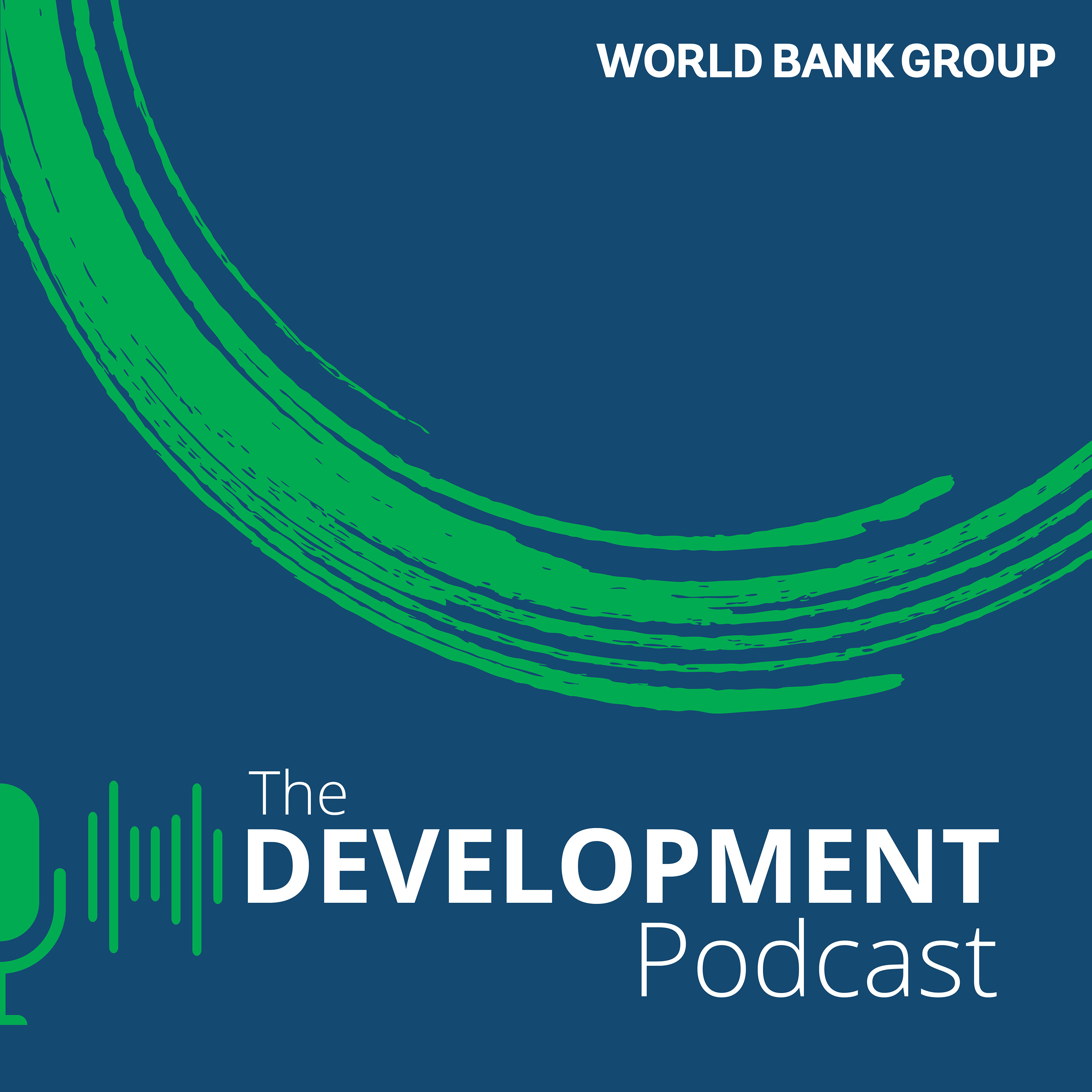Tackling Food Insecurity: From Emergency to Resilience | The Development Podcast
Description
Multiple shocks – from COVID-19 to climate change, conflict, crop disease – are crippling food systems, leading to higher food prices and growing hunger. Up to 783 million people faced hunger in 2022, and projections show that in 2030, over 600 million people will still struggle to feed their families. The way we produce food is also harmful for the planet, generating unsustainable levels of pollution and waste. What can we do to fight the global food crisis, especially in the most vulnerable regions? What are the World Bank and its partners doing to address this issue and what solutions have worked on the ground?
To answer these questions, on this episode of The Development Podcast we speak to: Gladys Wanja, a Kenyan mother and entrepreneur on the struggles she faces putting food on the table; Valerie Guarnieri, the World Food Programme’s Assistant Executive Director for Programme and Policy Development on how the Nobel-prize winning organization responds to dire emergencies; Dr. Catherine Nakalembe, NASA Harvest’s Africa Program Director and Assistant Professor at the University of Maryland on solutions in space technology, and Martien van Nieuwkoop, the World Bank’s Global Director for Agriculture and Food on what the Bank is doing to address the food crisis.
Tell us what you think of our podcast here >>>. We would love to hear from you!
Featured VoicesMartien van Nieuwkoop, the World Bank’s Global Director for the Agriculture and Food Global PracticeValerie Guarnieri, the World Food Program’s Assistant Executive for Programme Director and Policy Development Dr. Catherine Nakalembe, NASA Harvest’s Africa Program Director and Assistant Professor at the University of Maryland Gladys Wanja, a Kenyan mother and small business owner
Timestamps[00:00] Welcome and introduction of the topic
[01:46] What is food security and why the world is currently in a food crisis
[03:02] Voices from Kenya on food price volatility
[05:46] Voices from Central African Republic: boosting food production
[07:09] World Food Program: Providing emergency lifesaving food and cash assistance
[08:19] Impacts of famine and hunger beyond malnutrition
[09:30] Conflict is a driver of hunger
[10:38] Beyond emergency: Building resilience when it comes to food security
[14:13] Data for development: The role of satellites and NASA partnerships
[15:52] How food security issues are manifesting in East Africa
[17:28] The next frontier for using satellite data for food systems
[18:54] Voices from Egypt: Preparedness and resilience to future shocks
[20:00] What's needed to ensure longer term food security
[22:29] What the World Bank is doing to tackle food security
[25:19] Closure and thanks for tuning in!
ABOUT THE DEVELOPMENT PODCASTThis international development podcast brings together the data, research—and solutions—that can pave the way to a sustainable future. Through conversations focused on revealing the latest data, the best research, and cutting-edge solutions, let us introduce you to the folks working to make the world a better place. Listen and subscribe for free on your favorite platform. And rate our show! ;)
Tell us what you think of...
More Episodes
Published 11/07/24
As the old saying goes, if you can’t measure it, you can’t improve it. But of course, what you measure is important too. In this episode of The Development Podcast, we explore how the World Bank Group aims to strengthen its impact with a slimmed-down and focused scorecard.
We’ll hear how the...
Published 09/28/24
Creating a world free of poverty on a livable planet has been the vision and mission of the World Bank Group since October 2023. But what does it mean for people and planet? We’ve just wrapped up our series of podcasts exploring these crucial questions, and in this episode we bring you some of...
Published 08/09/24


